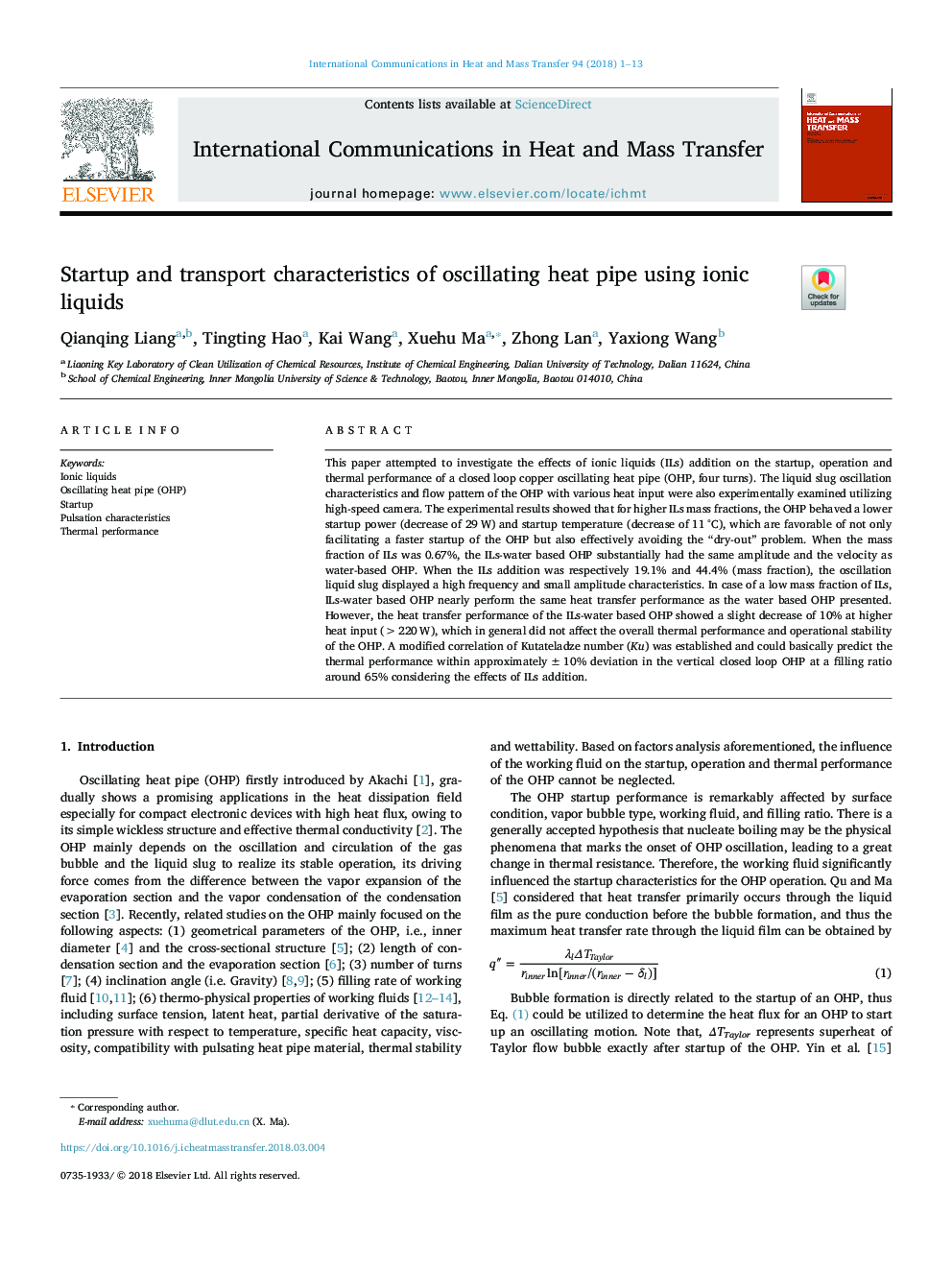| Article ID | Journal | Published Year | Pages | File Type |
|---|---|---|---|---|
| 7052852 | International Communications in Heat and Mass Transfer | 2018 | 13 Pages |
Abstract
This paper attempted to investigate the effects of ionic liquids (ILs) addition on the startup, operation and thermal performance of a closed loop copper oscillating heat pipe (OHP, four turns). The liquid slug oscillation characteristics and flow pattern of the OHP with various heat input were also experimentally examined utilizing high-speed camera. The experimental results showed that for higher ILs mass fractions, the OHP behaved a lower startup power (decrease of 29â¯W) and startup temperature (decrease of 11â¯Â°C), which are favorable of not only facilitating a faster startup of the OHP but also effectively avoiding the “dry-out” problem. When the mass fraction of ILs was 0.67%, the ILs-water based OHP substantially had the same amplitude and the velocity as water-based OHP. When the ILs addition was respectively 19.1% and 44.4% (mass fraction), the oscillation liquid slug displayed a high frequency and small amplitude characteristics. In case of a low mass fraction of ILs, ILs-water based OHP nearly perform the same heat transfer performance as the water based OHP presented. However, the heat transfer performance of the ILs-water based OHP showed a slight decrease of 10% at higher heat input (>220â¯W), which in general did not affect the overall thermal performance and operational stability of the OHP. A modified correlation of Kutateladze number (Ku) was established and could basically predict the thermal performance within approximately ±10% deviation in the vertical closed loop OHP at a filling ratio around 65% considering the effects of ILs addition.
Related Topics
Physical Sciences and Engineering
Chemical Engineering
Fluid Flow and Transfer Processes
Authors
Qianqing Liang, Tingting Hao, Kai Wang, Xuehu Ma, Zhong Lan, Yaxiong Wang,
